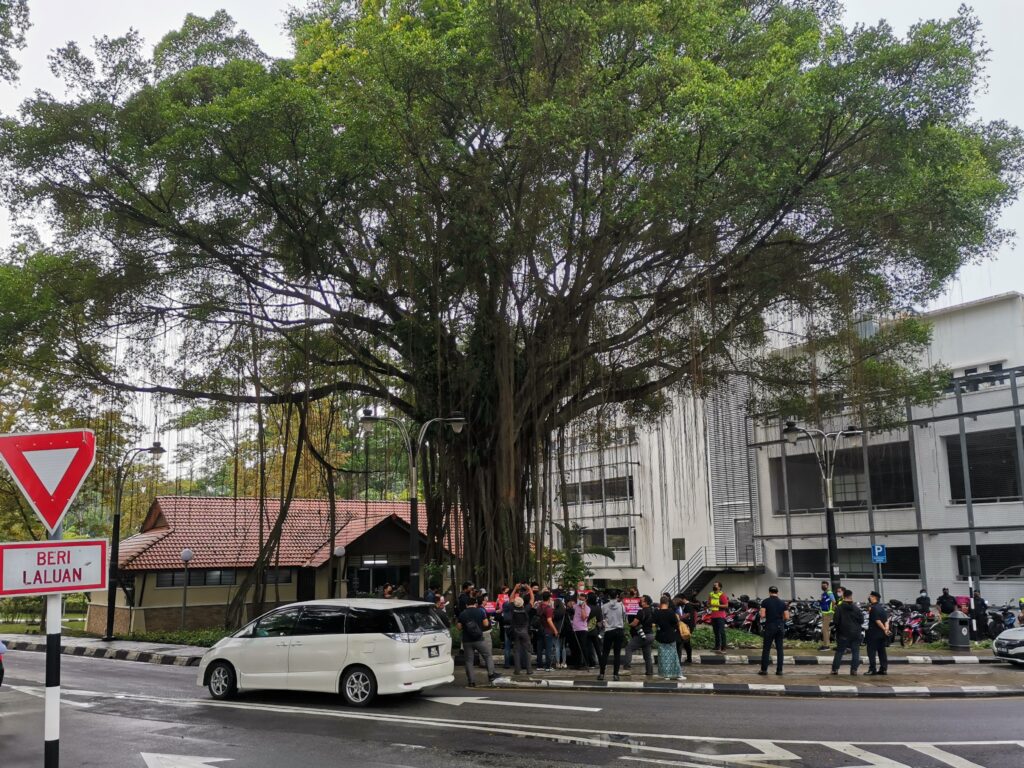God ordered Jeremiah to go stand in The People’s Gate. We are told this in Jeremiah 17 in verse 19, just beyond 17:5-10, the Lectionary Reading for Sunday. The Reading applies the image of trees to us, as individuals.
The Psalms portion says people who obey God’s ethical demands are like a flourishing tree (Psalm 1).
The New Testament portion urges us to think of the risen Christ as “the first fruits of those who have fallen asleep” (1 Corinthians 15:12-20).
The Gospels portion recaps the Beatitudes, the blessings awaiting those who are poor, hungry, weep; hated, excluded, reviled. It also recaps the woes awaiting those who are rich, full, well-spoken of and laughing (Luke 6:17-26). We could think of all of these as fruits.
I will focus on Jeremiah chapter 17.
God says, in verses 1-4, the Judahites are holders of ill-acquired wealth. I say this because the people are described as wealthy, with sin engraved “on the tablet of their heart, and on the horns of their altars” (verse 1).
Their sins include participation in the ways of non-Israelites, such as ascribing power to “Asherim” placed either beside green trees or in “high places for sin.” (verse 2).
Even in our own day, green trees denote prosperity and high places denote wealth and power. It is the wealthy whose homes are in the tree-covered hills of Kuala Lumpur. How did they acquire their wealth? To whom do they ascribe their prosperity?
God says, in verses 5-6, that those who trust in man, and whose hearts turn away from the LORD, are like “shrubs in the desert.” What God sees is not what man sees. The green tree beside which we must dwell must be God-approved before it is man-provided. It is the Kingdom of God (see Matthew 13:3). It bears fruit even in “the year of drought” (verse 8).
God says, in verses 9-10 that our hearts are deceitful and “desperately sick,” and that he searches every heart, tests minds, and gives to everyone “according to the fruit of his deeds.”
If we are inherently deceitful, how can we produce God-approved fruit? The answer lies in verse 11 and is amplified in verse 19 which supplies the title of this reflection, “Go stand in the People’s Gate.”
Verse 11 pronounces punishment of sudden loss of wealth and change in title from “rich” to “fool” on those who gain wealth through unjust means. Unjust means here includes exploitation of labour – failing to pay a fair, living wage (see 22:13).
How do we guard against our lives taking such a turn?
The answer lies in verse 19. God explicitly commands the prophet – and thus us – to “Go stand in the People’s Gate.” The gate is described as the means by which the kings of Judah and all the people enter and exit Jerusalem, the city of God. He is told to tell them to keep the Sabbath.
Golfers have a ready answer to what distinguishes Christians from non-Christians: Christians don’t play golf on Sundays. But is that all? And, if we insist on Sabbath-keeping, are we being legalists?
Bible scholars Terence Fretheim and Walter Brueggemann are helpful.
Fretheim says:
“Sabbath-breaking is seen here, not as an isolated matter, but as one more indication of the people’s stubbornness (v. 23). Sabbath keeping, on the other hand, would be an indication that Israel is no longer stiffening its neck and resisting the will of God for its life.”
Brueggemann says:
“Everything hangs on the Sabbath, because the Sabbath is the most dramatic sign that the will of God is honoured, and the life-giving power of God is trusted. To break Sabbath means to violate God’s will and to distrust God’s gifts.”
This morning I was moved by a story told on Facebook
It’s about a security guard in Selangor who was made to work 14 hours a day, 7 pm to 9 am, 7 days a week for years. No overtime, no rest days. When he had to attend to personal work, his wife had to fill in for him.
Members of Parti Sosialis Malaysia (PSM) helped him take his case to the Labour Court. The ex-employer put up a spirited defence with many counterclaims. The claims were shown to be false. Finally, an agreement was reached. The employer will pay him RM56,000 in back wages.
I’m sure there are thousands of similar stories. How many Christians are like that employer? How many Christians are like those PSM members? How many Christians Go stand in the People’s Gate?
Are the Sabbath-observant less stubborn, less stiff-necked and more God-dependent? Are they like flourishing trees? What kind of fruit are they?
To learn more about Rama, click here.


